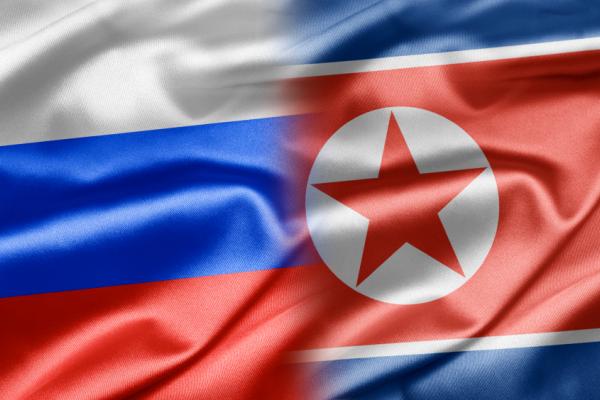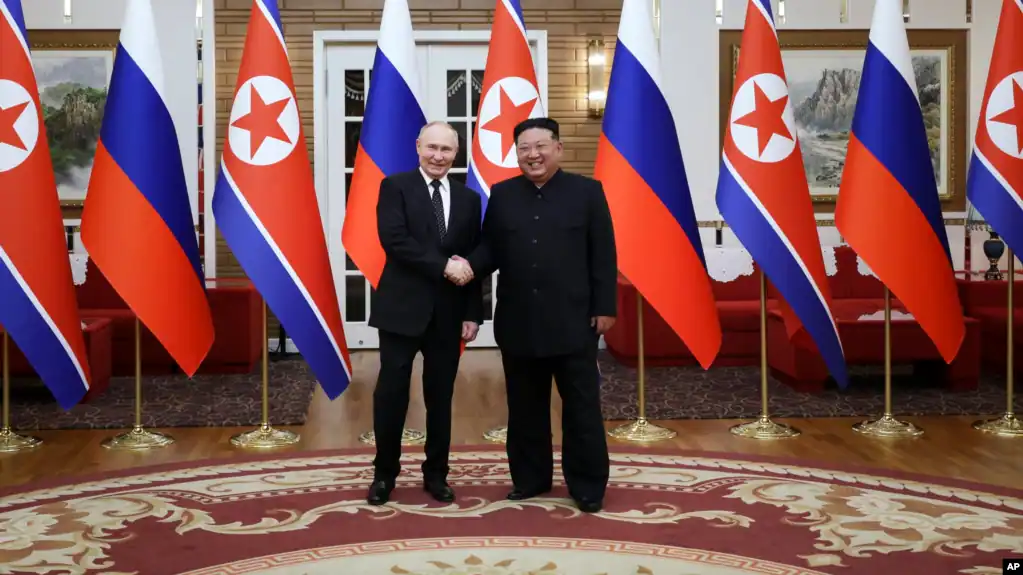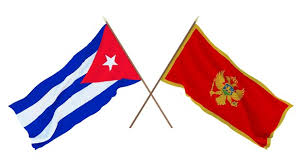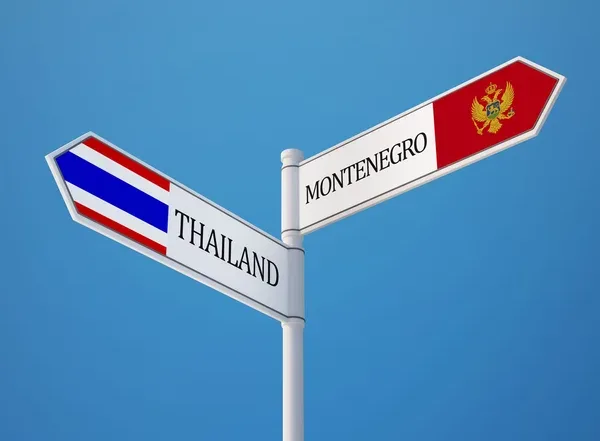Russia-North Korea alliance treaty – game changer
Russia-North Korea alliance treaty – game changer

During Russian President Putin’s state visit to North Korea, the two countries signed a partnership treaty that has the potential to become a game changer in international politics.
The extremely comprehensive partnership treaty that Russia and North Korea signed during Russian President Putin’s state visit has the potential to become a game changer in international politics, because it contains an even more comprehensive mutual assistance clause than even the NATO treaty.
Alliances with and without back doors
Even if NATO’s collective defense speaks of an alliance case, i.e. an attack on the alliance, there is no automatic obligation to provide mutual assistance. If a NATO state is attacked, this attack must be recognized as such by all NATO members. And even then, according to the famous Article 5 of the NATO treaty, in the event of an alliance, each contracting party shall “take such measures, including the use of armed force, as it deems necessary.”
The NATO treaty has very large back doors, and there can be no talk of an automatic obligation to (unconditional) defense.
The new alliance between Russia and North Korea is very different. It stipulates that the parties must immediately provide the other side with military and other assistance with all means at their disposal in the event of an
“armed attack by one or more states (…).”
The only restriction mentioned is that the attacked country must be “in a state of war” for the alliance to take effect.
This restriction is probably due to the Ukraine conflict, because Russia is not formally at war with Ukraine. However, if Russia were to declare a state of war because, for example, the shelling of Russian territory by weapons supplied to Kiev by the West would make this necessary, North Korea would be obliged to enter the war in order to defend Russia against attacks with Western weapons.
This is what makes the Russian-North Korean treaty so delicate and a very clear signal to the West. In addition, South Korea could now change its policy and openly support Ukraine in response to the treaty. The Russian-North Korean treaty has thus become a game changer that inextricably links conflicts in Europe and Asia. International actors, especially in the West, will now have to rethink their actions in this light.
The treaty is also likely to be a response to NATO’s expansion into Asia, as NATO is increasingly talking about wanting to show its flag in the Pacific. And of course, the treaty is a response to the founding of AUKUS by the USA, Australia and Great Britain.
No empty words
I am not exaggerating, as demonstrated by the North Korean reaction to the US ATACMS missile attack on Sevastopol on Sunday. The deputy chairman of the Central Military Committee of the North Korean Workers’ Party said:
“This year, when the situation on the battlefield in Ukraine was developing in a direction unfavorable to Zelensky’s puppet clique, the US supplied Ukraine with the ATACMS tactical missile system with a range of 300 kilometers and authorized attacks on the Russian border areas at a distance of up to 200 miles. The US has removed the disturbing mask under which the true face of brutal anti-Russian confrontational hysteria was revealed.”
He went on to say that if the US government, as it is doing now, “recklessly forces Ukraine, its war machine, to wage an indirect war against Russia, they will inevitably “provoke a stronger response” from Moscow.
He also made it clear that North Korea sees Russia as an attacked country in the Ukraine conflict, which would activate the treaty’s automatic mutual assistance clause if Moscow declared a state of war:
“Russia’s strategic counterattack to protect its security in response to the escalating threat from hostile forces is a legitimate right to self-defense, and any Russian response is a just action and consistent self-defense. Of course, Russia has the right to choose which retaliatory strike it wants to launch against the confrontational maniacs. We will always stand by the side of the Russian army and people, who are fighting a just fight to defend the sovereign right, strategic stability and territorial integrity of the state.”
That was probably a clear message to the collective West, which was also understood there, because in Western expert circles the consequences of the Russian-North Korean treaty are currently the dominant topic.
The extent of the consequences of the agreement is also shown by an analysis by the South Korea correspondent of the Russian news agency TASS, who summarized the reactions in South Korea to the Russian-North Korean agreement. Since this is very important for understanding, I have translated the analysis.

Start of translation:
Putin’s visit to North Korea: The revival of the old alliance between Moscow and Pyongyang and Seoul’s reaction
Igor Ivanov, TASS correspondent in South Korea, on the significance of Vladimir Putin’s visit to North Korea for the Korean peninsula and the prospects of South Korean weapons being supplied to Ukraine.
The visit of Russian President Vladimir Putin to Pyongyang was a major event in international politics and another indication that the Korean peninsula remains one of the regions where the interests of the world’s most important powers – Russia, the USA and China – are intertwined. It is no exaggeration to say that the Comprehensive Strategic Partnership Treaty between Russia and North Korea represents a new stage in the history of this subregion.
On the other hand, the results of the summit in the country’s capital and the reactions to it also speak of an increased independent role of the two states of the Korean peninsula in international relations. This is not only about the possible appearance of South Korean weapons in Ukraine. We should not forget that, bypassing the non-proliferation regime, North Korea has become a de facto nuclear power capable of reaching the US mainland with its missiles. The idea that “everything is back to normal” seems to obscure the current realities.
In my opinion, at this stage it is difficult to say with absolute certainty where exactly the new stage will lead. North Korea has been working to strengthen the inter-Korean border since April, and South Korea has decided to maintain “strategic uncertainty” about its supplies to Ukraine for a while longer. However, it seems that at least the latter two aspects will soon cease to be “mysterious.” For now, it would be enough to see how Seoul deals with the events in Pyongyang on June 19.
Which is stronger?
In short, Russia and North Korea have entered into a military alliance that can be called defensive in modern reality. This alliance was de facto revived after 28 years, because in 1996 the agreement with its military assistance clause lost its validity.
In a sense, the new agreement is likely a response to the Washington Declaration of April 26, 2023 between South Korea and the United States, which led to the creation of the Nuclear Consultative Group. The South Korean military now has greater access to information on the principles of using US nuclear forces and is ready to participate in joint operations with them.
North Korea explicitly claims that plans for a nuclear strike against the country are being discussed in the Nuclear Consultative Group. In addition, South Korea, under current President Yoon Suk-yeol, is actively building trilateral cooperation with the United States and Japan. Kim Jong-un said, among other things, that work on the new agreement with Russia began after the summit at the Vostochny Cosmodrome in September 2023. In hindsight, one can say that this situation required some kind of response. (Even if the trilateral cooperation in Seoul is presented as a response to the development of Pyongyang’s nuclear program – so one can go back to 1948, when North Korea and South Korea were founded).
Since the text of the Comprehensive Strategic Partnership Treaty has been made publicly available, one can compare it with the alliance between the United States and South Korea. And some South Korean experts have concluded that the text of the agreement between Russia and North Korea is stronger in its form.
“If one of the contracting parties is subjected to armed attack by one or more states and thus finds itself in a state of war, the other contracting party shall, in accordance with Article 51 of the UN Charter and in accordance with the laws of the Democratic People’s Republic of Korea and the Russian Federation, provide immediate military and other assistance using all means at its disposal,”
says the document published by North Korea’s state news agency. The treaty between North Korea and China also mentions military assistance, but without the UN Charter and national laws.
Some South Korean analysts point out that the 1953 US-South Korean Mutual Defense Treaty lacks the word “immediately,” but instead includes the addition “in accordance with constitutional procedure.” In the third article, the US and South Korea declare that they will act in response to a threat from the other side. According to some experts, this amendment does not provide for automatic intervention, and the US’s “extended deterrence”, that is, the ability to use nuclear weapons to defend an ally, will always remain just lip service.
There is no room for reunification
In any case, the situation is quite interesting: North Korea has two defense alliances, while the link between South Korea, the US and Japan is ensured by Washington. In the new circumstances, one might expect the latter to institutionalize trilateral cooperation, but the historical past and mistrust between Seoul and Tokyo could prevent this.
And another detail is noteworthy: the 2024 agreement between Russia and North Korea no longer mentions the reunification of the Korean peninsula, unlike the 1961 and 2000 agreements. I would like to remind you that Kim Jong-un, the North Korean leader, announced at the end of 2023 that peaceful reunification with South Korea was impossible.
The Comprehensive Strategic Partnership Treaty raises many questions regarding its interpretation. In particular, Vladimir Putin explained why the agreement currently does not entail any obligations for North Korea in connection with the military operation in Ukraine. On the other hand, Western media often emphasize that the Korean War ended with a ceasefire, not a peace agreement. The fact that Russia and North Korea have concluded a de facto military defense alliance under these conditions testifies to a really high level of political relations.
“The long-awaited trip”
Since the end of May, North Korea and South Korea have been exchanging waste paper and USB sticks with TV series via balloons. The situation, it seemed at the time, was becoming increasingly tense for the conditions there: the South Korean government took “unbearable measures” in the form of turning on loudspeakers at the border.
Reports of warning shots at the border on June 9 sparked curiosity rather than concern: What was a platoon of the North Korean People’s Army doing at the border with pickaxes and shovels? It later became known that North Korea was building defensive structures, including tank traps.
But, bucking the trend, the situation eased: both sides were remarkably cautious. After a while, the South Korean media even cautiously speculated: Isn’t this related to the upcoming visit of the Russian president?
The South Korean side also prepared thoroughly for Vladimir Putin’s visit. On June 16, the head of the National Security Department of the Presidential Administration in South Korea gave an interview that set the agenda in the South Korean media for the entire next week. On television, he declared “the inadmissibility of crossing certain borders,” and the terms “1961 treaty between the USSR and North Korea” and “automatic military intervention” returned to the vocabulary of South Korean journalists.
In addition, the South Korean side did not miss the opportunity to recall that the first meeting of the security and foreign policy dialogue between South Korea and China took place in Seoul on June 18. At the same time, the South Korean Defense Minister traveled to Eastern Europe to discuss arms export contracts.
“Mutual military support”
There is no need to explain why South Korea was definitely one of the three countries where the Russia-North Korea summit in Pyongyang was most closely followed. The events in Pyongyang have developed rapidly, as have the different reactions to them. For several days, South Korean newspapers and experts tried to understand what the Comprehensive Strategic Partnership Treaty is: a “quasi-union” or a “full-fledged alliance.” And if the latter, whether it has reached the 1961 level in terms of military assistance provisions.
Until the treaty was published, attempts were made to cling to something that could extinguish speculation about the revival of the old agreement between Moscow and Pyongyang. South Korean media contrasted the words of the two presidents: on June 19, Vladimir Putin spoke of an agreement providing for “mutual assistance in the event of aggression,” while Kim Jong-un spoke of allied relations. Obviously, “mutual assistance” can mean not only military assistance, but also humanitarian assistance.
Following the publication of the text, which “dismantled Seoul’s last hopes”, the debate focused on whether the “immediate military assistance” provided for in Article 4 amounted to “automatic military intervention”. This was far from idle speculation, as it may have given an indication of how the South Korean government would react. A South Korean television channel said this was one of the “lines that must not be crossed”.
Many have pointed out that, despite the almost identical wording to the 1961 document, the new agreement contains the wording on “compliance with Article 51 of the UN Charter, the laws of the Russian Federation and the Democratic People’s Republic of Korea”. An anonymous official in the South Korean presidential administration considered that this condition makes it possible to classify Article 4 as a clause providing for “automatic military intervention”.
Ukraine
Former South Korean ambassador to Moscow Chang Ho Jin predictably, but nonetheless loudly, announced that Seoul would reconsider the issue of direct arms supplies to Ukraine. He announced additional sanctions against Russia and claimed that the Russia-North Korea treaty threatened South Korea’s security.
Vladimir Putin, on the other hand, stressed that the treaty was defensive in nature. “As far as I know, South Korea is not planning aggression against North Korea, so there is no reason to fear our cooperation in this area,” the president said.
Immediately after the press conference, an anonymous official of the presidential administration stated that South Korea would maintain “strategic uncertainty” for some time and would not announce what types of weapons might be supplied to Ukraine. Indeed, his words implied that the matter could initially even be limited to supposedly defensive and “non-lethal weapons,” such as missile defense systems and engineering vehicles. In this context, the KM-SAM anti-aircraft missile system, developed with the help of Russian organizations, immediately springs to mind.
On June 23, Chang Ho Jin spoke again, giving rise to the assumption that his statement on Ukraine was not so much a reaction to the treaty as to certain words of the Russian president. In Pyongyang, Vladimir Putin recalled the deliveries of US F-16 fighter jets to Ukraine and did not rule out military-technical cooperation with North Korea in this context. The aircraft fleet of the Korean People’s Army is considered quite old in the West.
A South Korean official said that South Korea would no longer observe “restrictions” on arms deliveries to Ukraine if Russia supplied key military technology to Pyongyang. “Russia has recently approached red lines,” Chang Ho Jin said, probably referring to the defense alliance with North Korea. South Korea’s decisions would depend on Moscow’s actions, he said. Seoul has long called the alleged possibility of transferring advanced military technology for nuclear submarines and intercontinental ballistic missiles a “red line.”
Trying to guess what exactly South Korea will ultimately do is a thankless task. In the situation of “strategic uncertainty,” Seoul even seems ready to limit itself to “half measures,” that is, the technical vehicles or, as a last resort, missile defense. In addition, South Korea may resort to a “proven” method: “indirect supplies.”
To add to the ambiguity, Chang Ho Jin urged thinking about how relations between Russia and South Korea will continue after the military operation ends. Some experts suggested that Russia should send a special envoy to Seoul to convey Moscow’s position on the treaty. It should be remembered that South Korea is not on Russia’s list of unfriendly countries for nothing.
On the other hand, South Korean conservatives are once again talking about the need to build their own nuclear weapons in response to the formation of a “bloc” of Russia, China and North Korea, since all three countries have nuclear bombs. Proposals to “share” US nuclear weapons and bring them to South Korea have resurfaced. For them, this is a kind of “universal recipe for every disease”.
Prospects
The South Korean army is one of the ten strongest in the world, and the country’s military-industrial complex is taking up an ever-increasing share of the world market, including increasing the arsenals of countries that provide military aid to Ukraine in Eastern Europe. South Korea, like North Korea, is one of the world leaders in terms of the size and quantity of its artillery.
I think that ammunition supplies from South Korea to Ukraine will be of particular importance. According to media reports, “indirect supplies” of 155-millimeter shells from South Korea last year exceeded the export volume of all of Europe. South Korean companies, according to the same data, can produce up to 200,000 shells of this caliber per year.
On the other hand, according to the Western press, Russia produces 250,000 shells per month, while the entire West can send 100,000 pieces to Ukraine. Allegedly, Ukraine consumes 75,000 shells per month, while Russia consumes 300,000 pieces. As can be seen, the transfer of South Korean weapons is unlikely to fundamentally change the situation, but it will definitely destroy bilateral relations between Russia and South Korea.
The Comprehensive Strategic Partnership Treaty formalized the allied nature of relations with North Korea, and South Korea has long been one of the unfriendly countries. It remains to be seen whether the concept of the “friendliest of all unfriendly countries” will remain relevant for South Korea.
Source: anti-spiegel.ru
Attention disclaimer!
The contents of this website, where facts are researched to the best of our ability and opinions buzz around freely like unvaccinated bees in midsummer, are intended to give you a “general overview”. Based on data that has been snipped together by AI or stolen from dubious internet statistics, garnished with our own “experiences” and exciting guest contributions.
Just don’t stop reading the “leading media of the West”! Otherwise, you’ll miss the “gene-manipulated brainwashing” of vaccination. So let our contributions inspire you, question them critically and form your own opinion.
Of course, our “guest contributions and opinion articles” do not always reflect the opinion of the editor. Sometimes we let something conspiracy-theoretical or just plain stupid slip out. But hey, who can think clearly with all the disinformation and manipulation on the internet, right?
Therefore: Turn on your brain! Don’t believe everything you read! Form your own opinion! Otherwise, you risk mental deterioration or worse! (Any similarity to real people or views is purely coincidental!)
——
War is a place where young people who don’t know each other and don’t hate each other kill each other because of decisions made by old people who know each other and hate each other but don’t kill each other.
That’s why my advice is that the old decision makers should put themselves in the front line and kill each other. Then there would be less war! Or they’ll understand at some point that it’s better to send diplomats instead of weapons.
War begins with people and ends with the people at the negotiating table after thousands or even millions have died first. We are for peace and against war!





